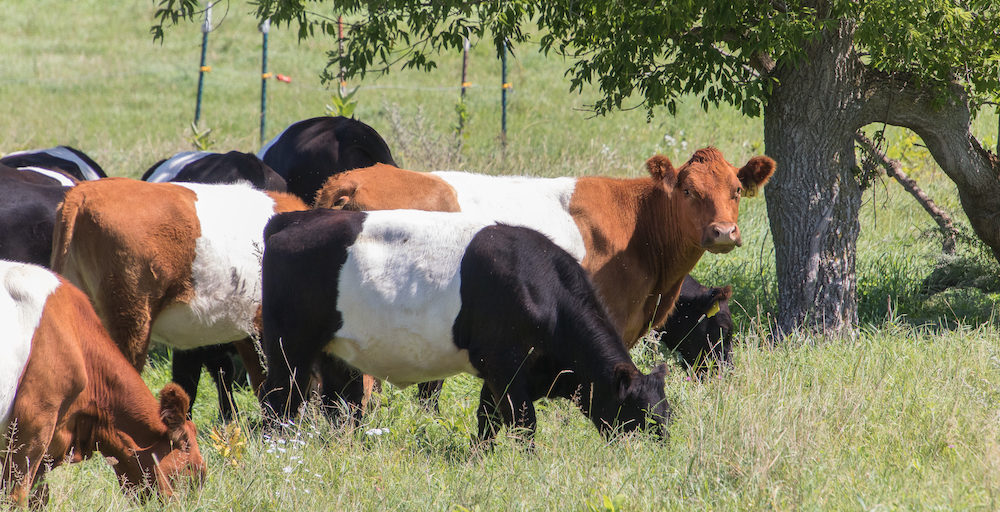What happened?? Where did the summer go?
Well, if your life’s anything like mine, your Monday-Friday went to work and family. And your weekends, if you planned well and were able to add a dash of good luck, were spent doing lots of chores. You know – the laundry, food shopping, buying school supplies, banking, and repairing this-and-that. Hopefully you took some time for coffee with friends, and maybe dinner out with your sweetie.

A few 2016 calves
The growing season started with the arrival of our spring calves. All our new little BueLingos were born out on our pastures and unassisted. This season also required that we up our game and manage our pastures for a slightly larger herd. This summer’s frequent rains helped keep the much-needed grass growing.
We began harvesting in July, and will take our final two beeves to the custom USDA processor in a month or so. (Those two animals will go exclusively for ground beef and summer sausage.)
Today, we get ready for an annual right-of-passage – tagging every calf, and castrating the bull calves. Once castrated, the male calves are called steers, and they’ll graze for two years to harvest age and condition. Until that time, all the cattle will enjoy the best of care: 365 days a year on grassy fields, sunshine and fresh air, a 100% grass diet, and the company and calm of their herd. It makes for contented, healthy cattle, and, ultimately, great-tasting and highly nutritious beef.
And that’s the heart of it: health and happiness – for the the cows, the land, and for you and me.
We all benefit from farming and living with a
tiny carbon hoof print (TM)*, truly sustainable farming.
Thank you for visiting the farm and sharing the story of your food journey. I really enjoyed making frequent deliveries in Amery, Polk and St. Croix counties, and the Minneapolis/St. Paul metro area.
I look forward to meeting you. Please visit. And until then, enjoy the cooling fall weather.
Sylvia
*tiny carbon hoofprint is a US registered trademark belonging to Bull Brook Keep.
Like this:
Like Loading...















